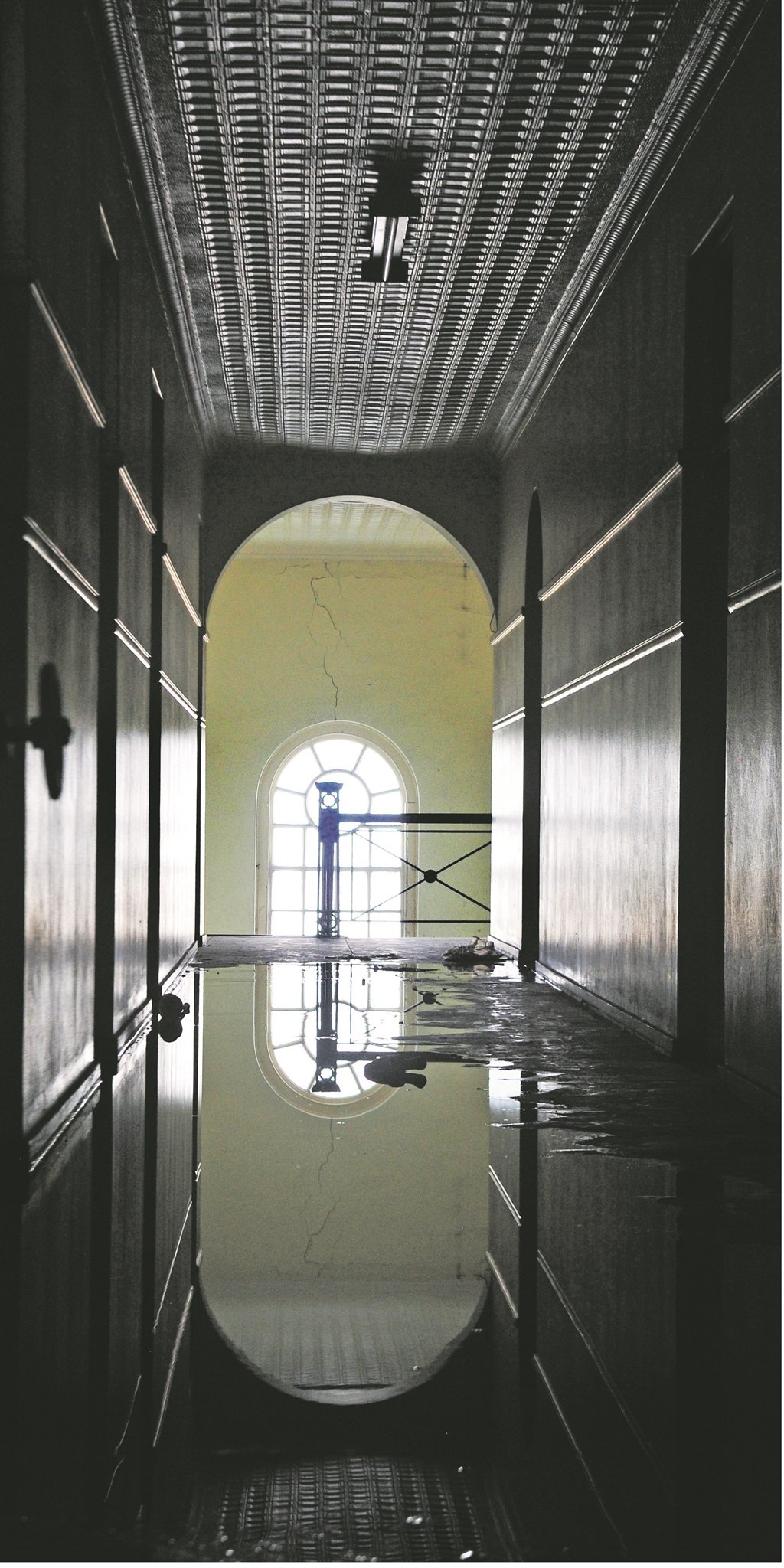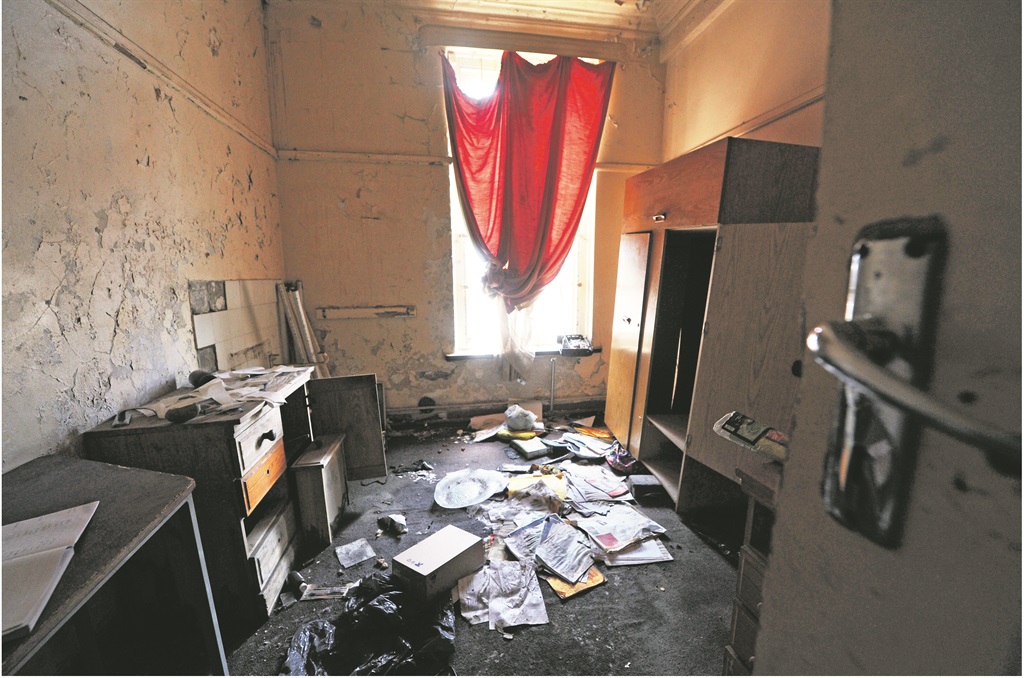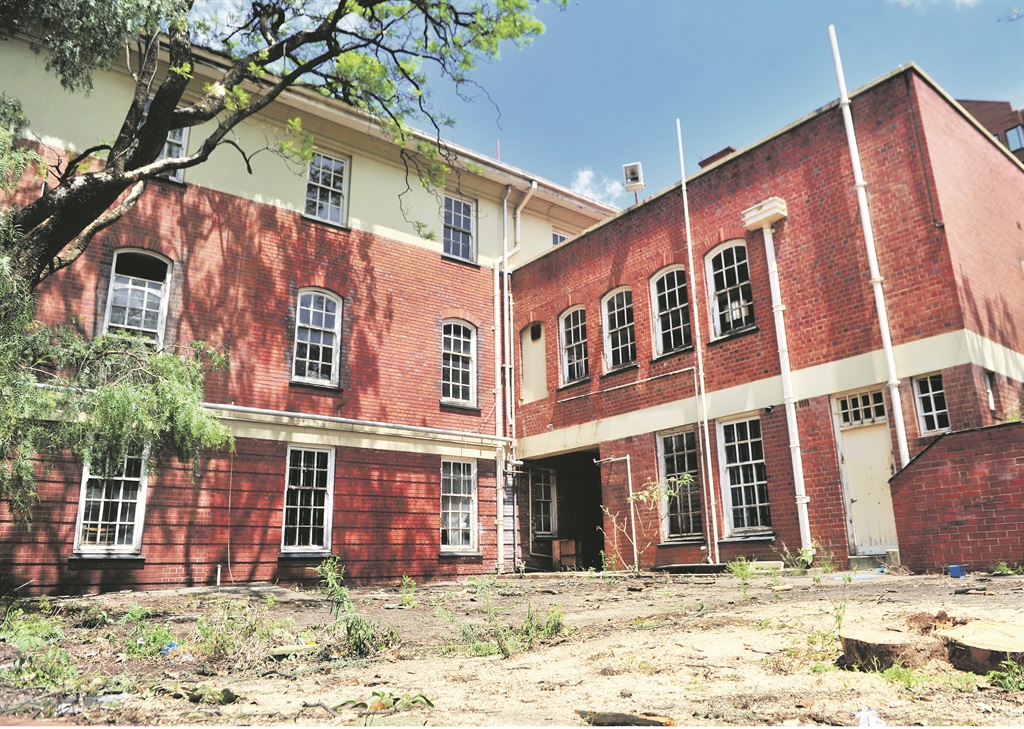
Gauteng health plans to remove 1 726 state psychiatric patients from private care ... but where to?
Zibusiso Ngwenya (19) was three years old when he was diagnosed with autism.
“Zibusiso has never been able to live a normal life like other people,” his father Joseph explains in an affidavit. “He just becomes angry without warning. He will often destroy things like windows, televisions or other items in the house.
“Zibusiso has on numerous occasions attempted to jump out of the windows of our home. We live on the 10th floor.”
Joseph Ngwenya is one of 13 family members – mostly parents – of intellectually disabled and chronic psychiatric patients who filed affidavits just before Christmas in the South Gauteng High Court.
The affidavits form part of an urgent interdict application brought by the SA Depression and Anxiety Group (Sadag), the SA Federation for Mental Health and the SA Society of Psychiatrists.
Together with the families, they are demanding to know what will happen to patients like Zibusiso after the Gauteng department of health made a decision to remove 1 726 state patients from Life Esidimeni’s four private hospitals by the end of March.
Announcing the decision in October, Gauteng health MEC Qedani Mahlangu said: “As a department, we want to reduce psychiatric patients at facilities by discharging all those who are responding well to treatment, integrate them back into communities and afford them treatment at their respective homes.”
The plan is controversial – from April 1, only patients under 18 will be allowed to remain at Life Esidimeni. The 526 most severe cases will be transferred to state psychiatric hospitals Weskoppies and Sterkfontein, despite these facilities having waiting lists of their own. The remaining 1 200 patients will either be sent home to their families or to NGOs.
Internal records show that of the 1 973 patients currently in Life Esidimeni, 532 have lived at Life Esidimeni for 10 years or more. Almost half (773 patients) no longer have any contact with family, 474 have no identity documents, and 217 fall into the category “without ID, without family”.
For now, the court action is temporarily on hold – the department agreed to stop discharging any patients until the end of January and to consult with Sadag and the other applicants on the plan.
But this is only temporary – on Wednesday, the department confirmed that the deadline of March 31 remained in place.
Money is the problem
In 2014/15, the department paid Life Esidimeni R323.7 million – roughly 1% of its R31.5 billion budget – to care for 2 378 patients. The department had planned to slowly reduce this number of patients until 2020, but financial pressures intervened.
“During the past three years, the department has been under tremendous financial constraints,” wrote Dr Barney Selebano, the head of the department of health, in a letter to Life Esidimeni in September, announcing the decision to cancel the contract.
“The rehabilitation and discharge of mental healthcare users to either their homes or NGOs, earlier than was the practice before, is now an unavoidable priority of the department.”
The department says the plan is in line with its policy of treating psychiatric patients in the least restrictive environment possible. But in court papers, Sadag claims Selebano said the department “didn’t look at the profiles of patients, we only looked at cost”.
The department currently pays Life Esidimeni R320 per state patient per day.
For several years, the gulf between what the department budgets and what it spends has widened. In 2014/15, it overspent its Life Esidimeni budget by R72 million, which was red-flagged by the Auditor-General.
The question NGOs and family members now want answered is what will happen to those patients who cannot go home.
In a written response in the Gauteng Provincial Legislature in November, Mahlangu said the department would create an additional 1 784 beds by reopening old wards in existing psychiatric facilities and renovating disused buildings.
City Press tracked down two of the buildings Mahlangu identified: the old nurses’ residence at the Transvaal Memorial Institute opposite Constitution Hill and the Dan Pienaar crèche in Parktown.
Both buildings are derelict and in desperate need of renovations.
Built at the turn of the 20th century, Dan Pienaar is badly run down. The wooden balcony is slowly collapsing under the weight of abandoned furniture, and paint peels off walls in rooms littered with broken and abandoned children’s toys.
Yet according to the department, 38 patients could be housed here from April.
The former nurses’ residence opposite Constitution Hill is worse. Three of the four floors are flooded by a burst pipe – water pours through cracks in the ceiling, the walls are covered in mould, and electrical cables have been ripped out, leaving the bottom floor dark, flooded, and eerily quiet, except for the sound of running water.
The department wants to move 151 patients here.
Renovations were supposed to be completed by January, but despite the deadline looming, renovations have not started and the department has still not released the names of the NGOs that will take over and run these buildings.
Dr Mvuyiso Talatala, president of the SA Society of Psychiatrists, worked at Sterkfontein for many years and said they had tried to place patients with NGOs, but the organisations were unable to cope with the high level of care these patients needed.
“These are the most severely ill patients,” said Talatala. “We have tried to place people with NGOs in the past – we would prefer that – but many of them returned the patients to us.”
The first meeting to chart a way forward was held on Wednesday, and although all parties committed to work together, correspondence filed as part of the interdict application shows deep distrust between them, with the department accusing the NGOs of being “dishonest” and acting with “selective morality”.
Mahlangu has assured families that “no patient will be thrown on the streets”, but the NGOs have indicated that if there is no agreement they will consider asking the courts to intervene.
AFFIDAVIT OF REBECCA SHONGWE:
“My son, Bongane Tshabalala, has been ill since 1995. In 2000 he got significantly worse and believed that people wanted to kill both him and me … In the past, he has run away and we would be contacted by the police, who would find him wandering the streets and trying to sell our personal property…
“If he is made to leave Esidimeni and return home, my neighbours and I will live in constant fear of him and what he might do to us … I love my son, but I am afraid of him.”
AFFIDAVIT OF ALICE*:
“[My son] was born with an intellectual disability. At the age of 18, he began to hear and see things, display dangerous behaviour and was diagnosed with psychosis and schizophrenia…
“[My son] has never physically harmed anyone, but my younger daughter and I have both needed to take the precaution of locking ourselves in our rooms when he has displayed aggressive behaviour … While in Sterkfontein, [my son] was raped and sodomised by other patients … I love my son, and want the best care for him … He needs a place like Esidimeni, and neither he nor our family will be able to cope if he is forced to leave.”
(*Name withheld to protect the identity of a victim of rape)
AFFIDAVIT OF PETROS DAVHANA:
“Lowrance has had an intellectual disability from birth. He has never been mentally sound and stable, is violent towards others and refuses to take his medication…
“In 2010, Lowrance killed his five-year-old nephew by placing him on a gas stove … He has only been discharged once, in 2013. During that time, he attempted to kill his grandmother by strangling her … At Esidimeni, he consistently takes his medication and sees both a psychiatrist and social worker. Lowrance feels safer and, when he is at Esidimeni, is able to communicate better and is more joyful … I love my son very much, but I am afraid of what might happen to him if Esidimeni closes down.”
To view more affidavits and photographs take a look at our Special Feature page




 Publications
Publications
 Partners
Partners










